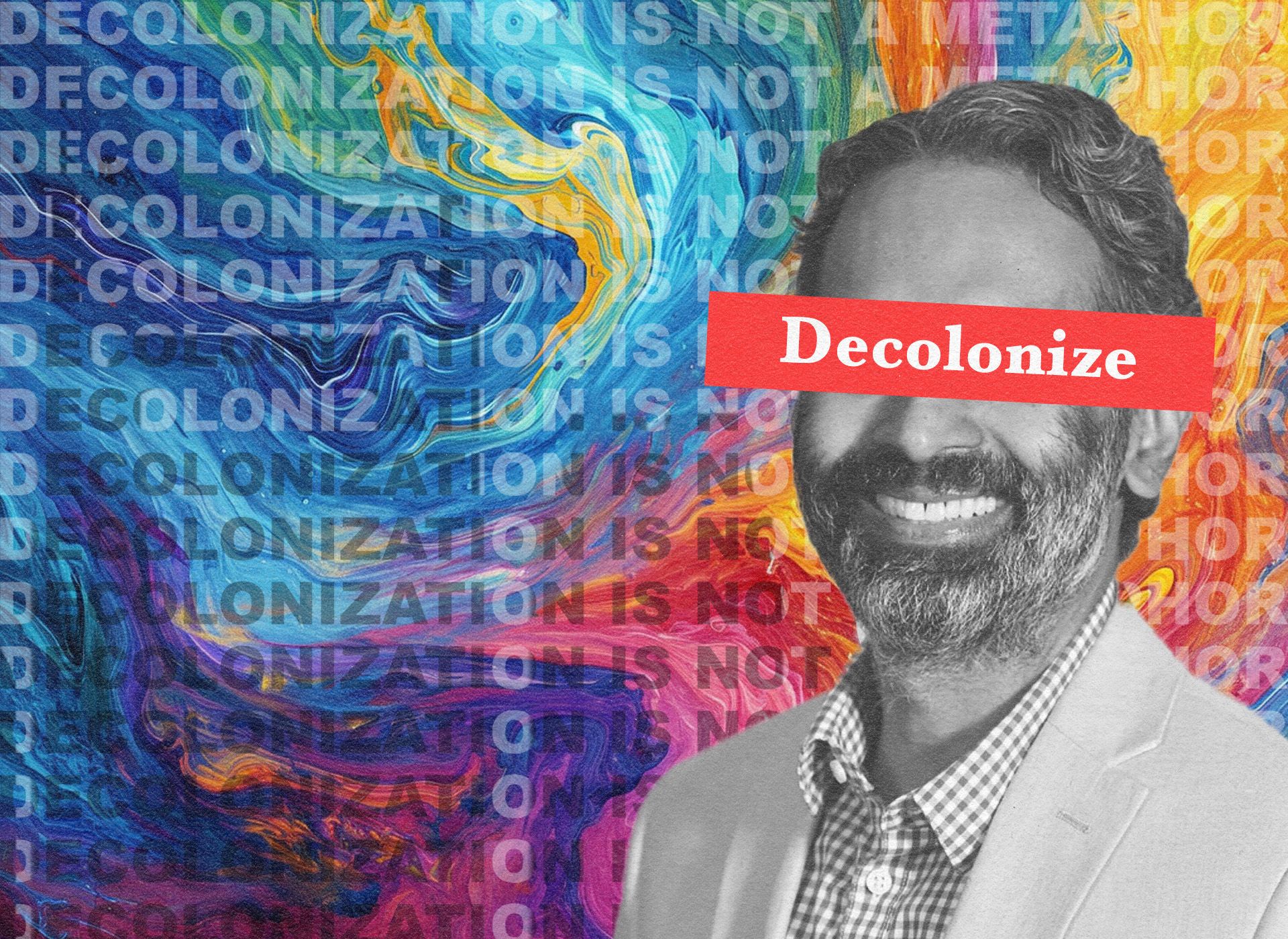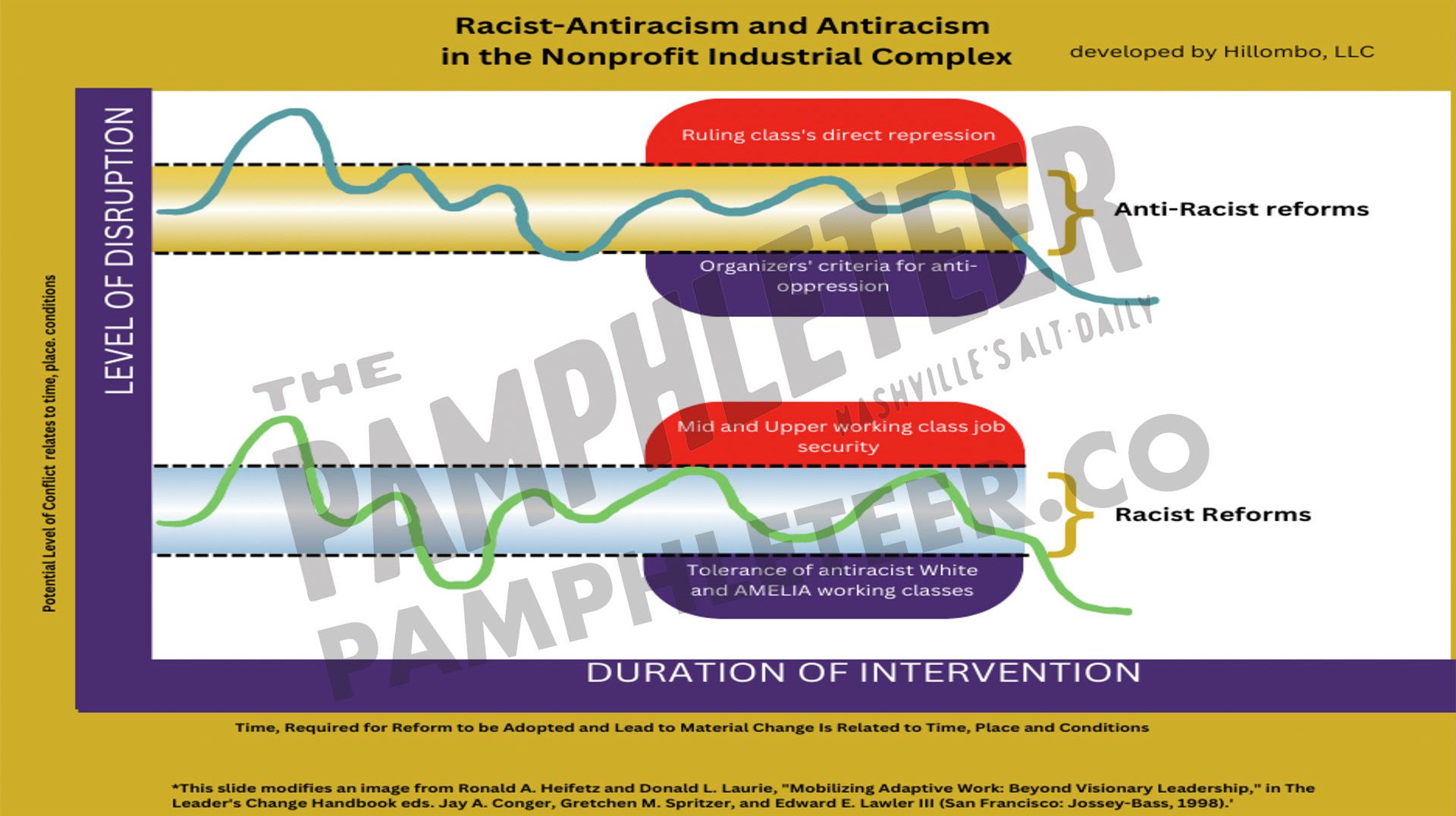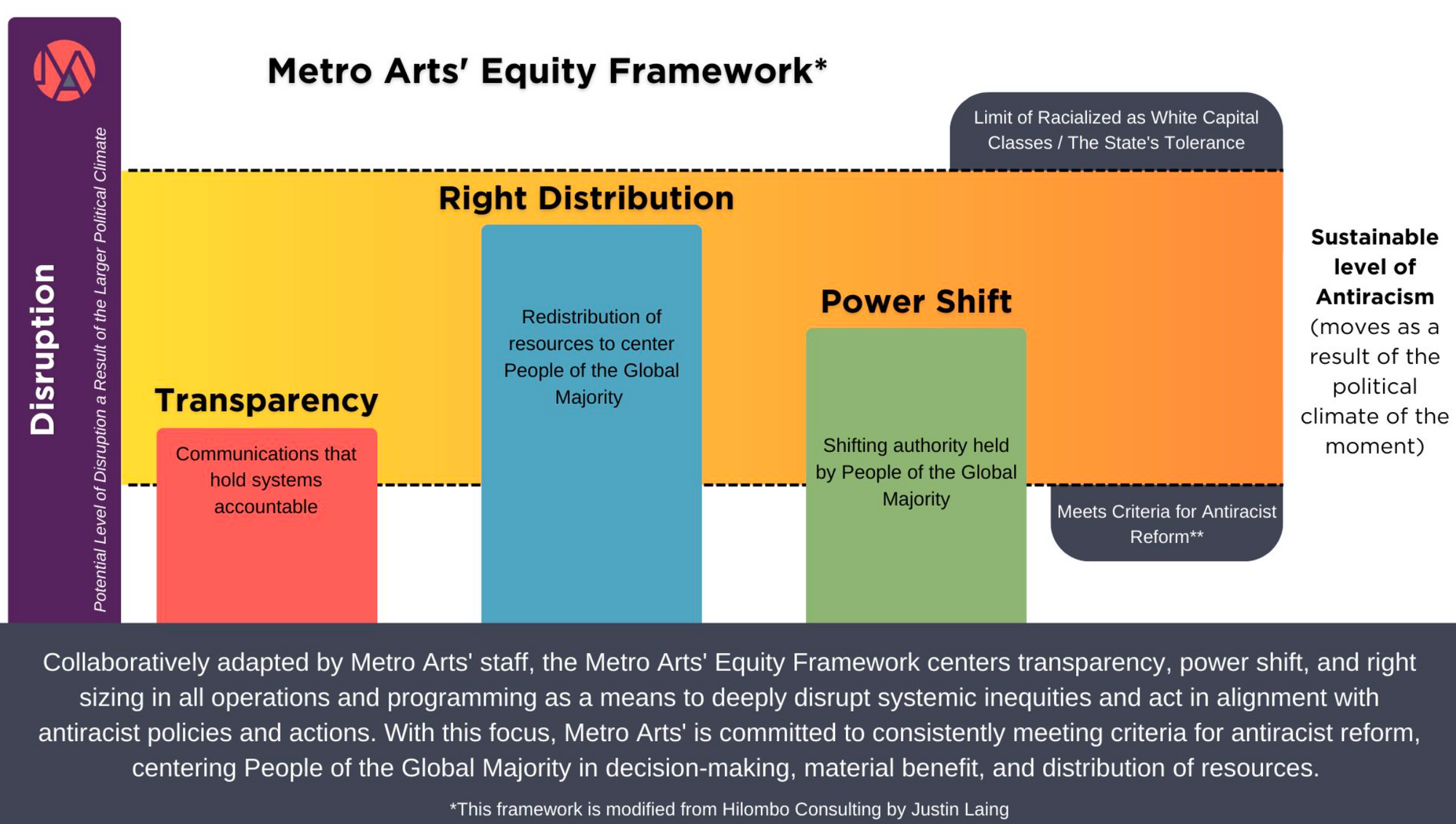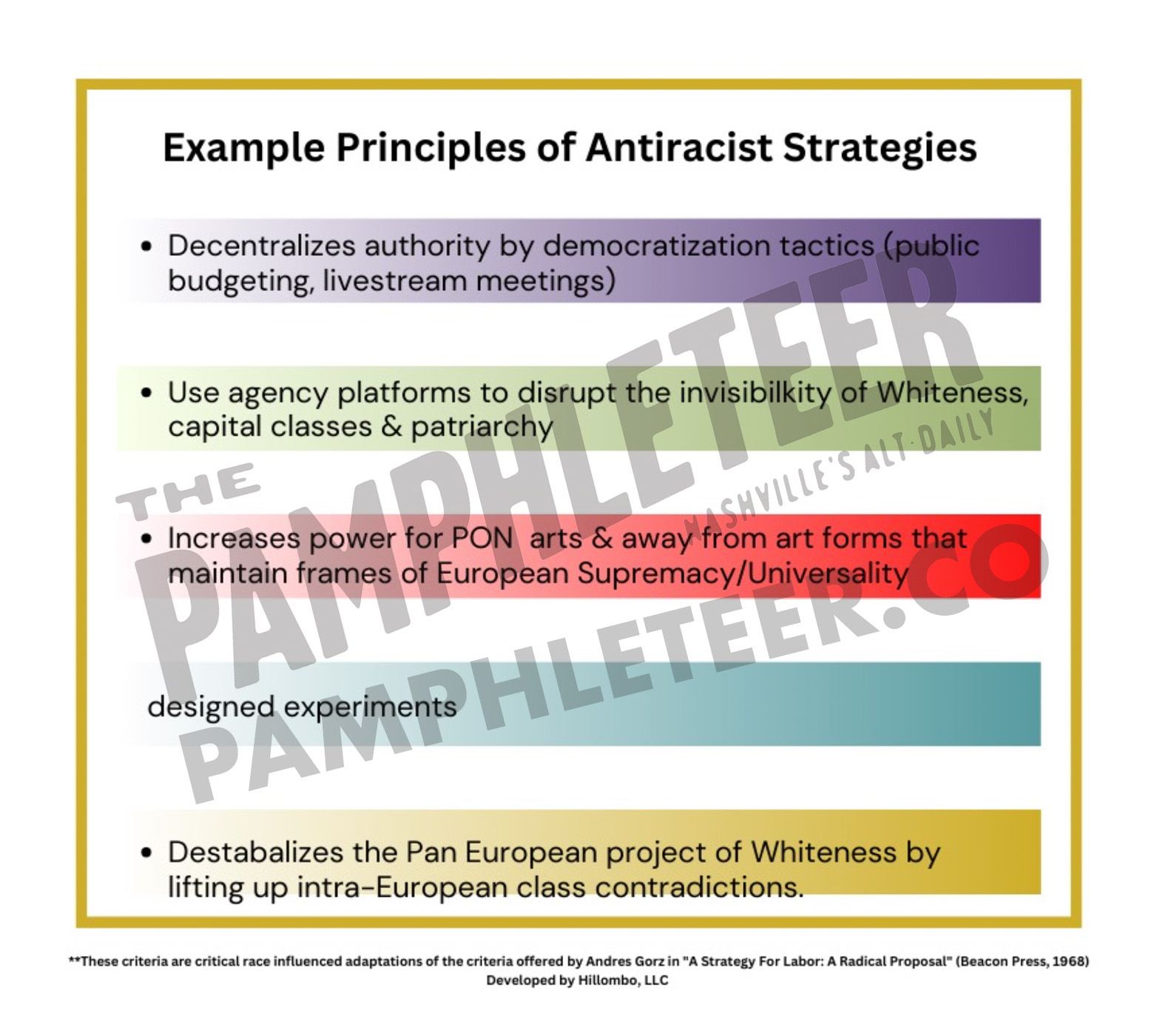
EXCLUSIVE: Metro Arts launches initiative to 'return land, money, and resources' to 'Indigenous, African, and Asian peoples'
Executive Director Daniel Singh has surrounded himself with a cadre of radical consultants and has pledged to re-envision Metro Arts as an anti-racist organization committed to decolonization
Since Daniel Singh was appointed Executive Director of Metro Arts two summers ago, controversy and dysfunction have reigned supreme. Not only is the organization’s fifteen-member commission short seven members after a spate of resignations, but the city is also conducting an audit of its financial management after it failed to fully pay out the operating grants it was designed to administer. Much of the chaos has arisen from Singh’s efforts to introduce a “more equitable funding model.”
A presentation circulated internally to staff and members of the Metro Arts Commission reveals that a radical agenda has taken hold at the beleaguered office. Authored in collaboration with Justin Laing of Hillombo Consulting and titled “What Could An Anti Racist Cultural Planning Process Look Like,” the presentation outlines a vision advocating the organization’s adoption of “antiracist planning” to create “antiracist outcomes.”
According to the presentation, a racist arts practice is one that “maintains the distribution of land, money, & narrative resources between European and Indigenous, African/Black and Asian peoples within the ‘cultural community.’” Conversely, an anti-racist arts practice “returns land, money and narrative resources to Indigenous, African and Asian peoples within the ‘cultural community.’” Another slide reads, “‘Race’, ‘the arts’, and ‘white people’ emerged at a similar point in history and worked together to facilitate the development of colonial and imperialism.”
The slides reveal the guiding principles Singh hopes to promote within the organization as the Metro Council is set to approve five new commission members during tonight’s meeting.



METRO ARTS IN TURMOIL
At the end of last year, the Nashville Banner reported that operating grants—typically the main function of the office—had not been distributed in full. Operating grants typically go to institutions such as the Nashville Symphony, the Frist Art Museum, the Tennessee Performing Arts Center, and several other, smaller professional groups. In response to both the Banner’s reporting and insufficient answers from Singh, the city announced its intention to audit Metro Arts over the unpaid grants the following day.
The delayed disbursement of operating grant funds is due in no small part to the expansion of Metro Arts’ Thrive program, which provides money for individual public and community art projects, most prominently murals.
The Thrive program was the vehicle selected by Singh and his supporters on the commission as the means by which to bring more equity into the funding process. In FY23, total funding for the Thrive program amounted to $178,600. In FY24, funding for Thrive expanded to $908,000 and did not finance a single mural.
During the commission’s meeting on July 20th, 2023, the commission voted to adopt a progressive new funding formula that would “fully fund” Thrive and close “identified disparity, maximize impact for BIPOC applicants, redistributes general operating funds for Micro, Small, and Medium organizations from 24% (in FY23) to 54%.”
But in the interim between the July and August meetings, Metro Legal advised the commission that the discussion around the July vote jeopardized the legality of the vote and the new formula it selected. Notably, the meeting was not recorded and repeated FOIA requests for communications around the meeting have been ignored, so we had to rely on the meeting minutes.
On August 17th, the Metro Arts commission met to vote again. Defending the prior funding formula and the view that Thrive would be how they would achieve the sought-after anti-racist outcomes, Singh warned, “The place that the triage needs to happen…is in the individual artists, the micro, small, and medium artists” before doubling-down and declaring that the old formula was not the equitable choice. Despite his protestations, the commission voted to return to the traditional funding plan.
CHARGING AHEAD
On the FY25 operating grant application page, the first question asked of applicants is whether or not the organization identifies as “BIPOC-led,” meaning an organization in which “at least 50% of the board of directors identifies as BIPOC, whose executive director or 50% of senior leadership (decision-makers) identify as BIPOC, and whose mission statement and/programs aim to predominantly serve BIPOC communities.”
By this definition, organizations such as the W.O. Music School, which typically receives operating grant funds from Metro Arts and predominantly serves minority children in the city, would not qualify as BIPOC-led. Other organizations such as the Arts & Business Council of Greater Nashville, the Nashville Ballet, and the Defy Film Festival could also be subject to scrutiny.
Asked whether the question could open up Metro Arts to Title VI lawsuits, Metro Legal Director Wally Dietz replied, “It is our understanding that this information is being tracked for demographic purposes, not for the purpose of prioritizing certain applicants.”
The Pamphleteer has filed three separate FOIA requests with the Metro Arts department regarding internal communications to get a clearer understanding of how the organization plans to implement its anti-racist program, with no response on the status of said requests since January 9th. Daniel Singh could not be reached for comment.
